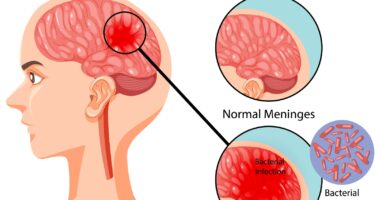Autism Spectrum Disorder (ASD) is a fascinating and intricate neurodevelopmental condition that impacts millions of individuals globally. Despite growing awareness, numerous myths and misconceptions about autism persist. These myths can lead to misunderstanding, stigma, and inadequate support for individuals with autism and their families. This blog aims to dispel common myths about autism by presenting the facts.
Myth 1: Autism is Caused by Bad Parenting
Fact: Autism is not caused by parenting style or the actions of parents. Extensive research has shown that autism is a neurodevelopmental disorder with a strong genetic basis. Environmental factors may also play a role, but the idea that bad parenting causes autism is a harmful myth that has been thoroughly debunked.
Myth 2: Vaccines Cause Autism
Fact: Numerous scientific studies have found no link between vaccines and autism. The myth that vaccines cause autism originated from a fraudulent study published in 1998, which has since been retracted and discredited. Vaccines are essential for preventing serious diseases, and the claim that they cause autism is false and dangerous.
Myth 3: People with Autism Lack Empathy
Fact: People with autism can and do feel empathy. They may express it differently or have difficulty interpreting social cues, but this does not mean they lack empathy. Many individuals with autism are deeply compassionate and caring once they understand the emotions of others.
Myth 4: Autism is a Childhood Condition
Fact: Autism is a lifelong condition. While symptoms may change and some individuals may develop coping strategies, autism does not disappear with age. Adults with autism continue to require support and understanding throughout their lives.
Myth 5: All People with Autism Have Intellectual Disabilities
Fact: Autism is a spectrum disorder, meaning it affects individuals differently. While some people with autism have intellectual disabilities, many do not. People with autism can have a wide range of cognitive abilities, and some have average or above-average intelligence.

Myth 6: Autism is Rare
Fact: Did you know that autism is more prevalent than most people realize? The Centers for Disease Control and Prevention (CDC) estimates that about 1 in 54 children in the United States is diagnosed with autism. Increased awareness and better diagnostic tools have contributed to a rise in diagnosed cases, reflecting a more accurate understanding of the prevalence of autism.
Myth 7: People with Autism Cannot Lead Independent Lives
Fact: Many individuals with autism live independent and fulfilling lives. With the right support and accommodations, people with autism can succeed in education, employment, relationships, and other areas of life. The level of support needed varies, but independence is achievable for many.
Myth 8: Autism Can Be Cured
Fact: There is no cure for autism. It is a lifelong condition, and efforts should focus on support, acceptance, and improving the quality of life for individuals with autism. Interventions and therapies can help manage symptoms and develop skills, but they do not cure autism.
Myth 9: Autism Affects Only Boys
Fact: While autism is more commonly diagnosed in boys, it also affects girls. Girls with autism are frequently underdiagnosed because they often display different symptoms and are adept at concealing their challenges. Increased awareness and research are helping to improve the diagnosis and understanding of autism in girls.
Myth 10: All People with Autism Have Savant Abilities
Fact: It is rare to portray individuals with autism as having extraordinary abilities in areas like mathematics, music, or art. While some may have exceptional talents, most do not. The abilities and challenges of individuals with autism are diverse and unique to each person.
Conclusion
Dispelling myths about autism is crucial for fostering understanding, acceptance, and support for individuals with autism and their families. Recognizing the facts helps to combat stigma and ensures that people with autism receive the respect and resources they deserve. By educating ourselves and others, we can create a more inclusive society where everyone has the opportunity to thrive. If you or someone you know is affected by autism, seek information from reputable sources and support from autism advocacy organizations to better understand and navigate this complex condition.









